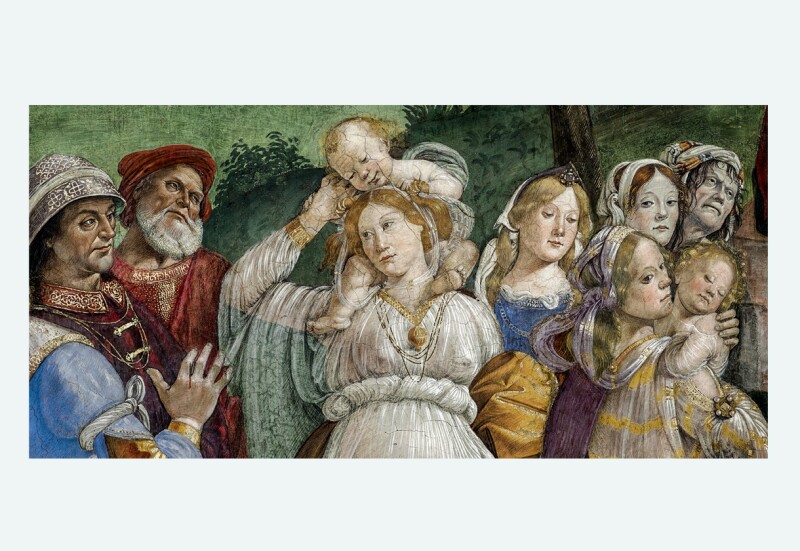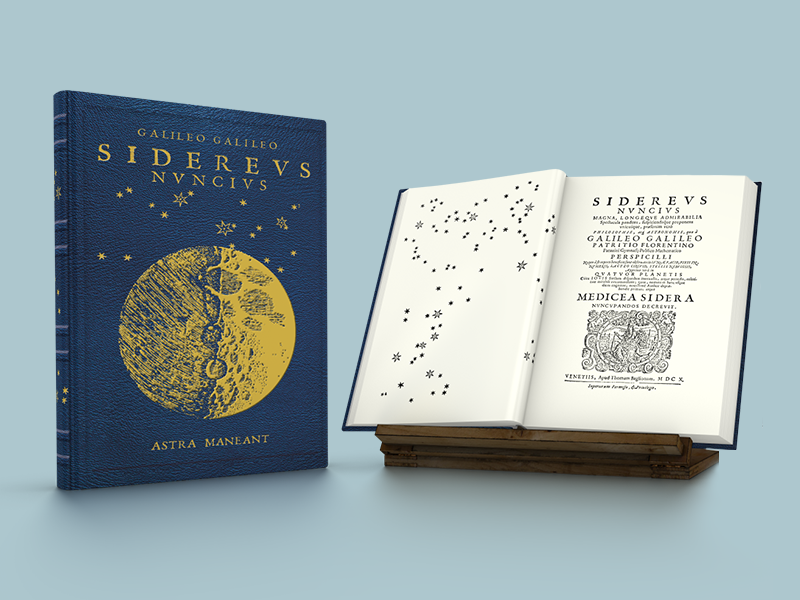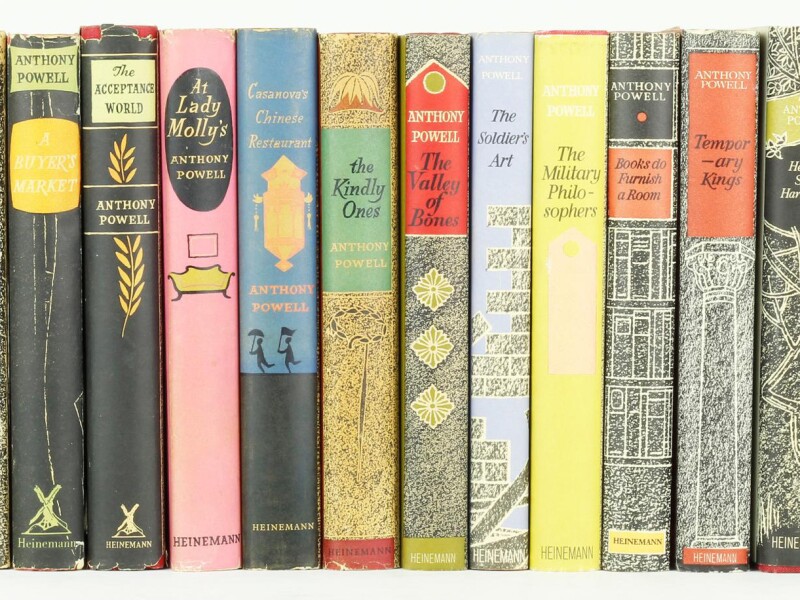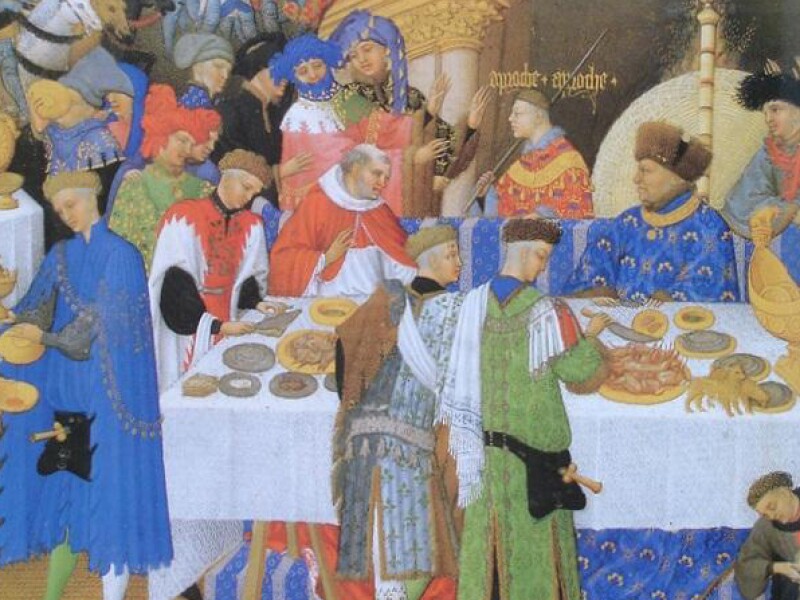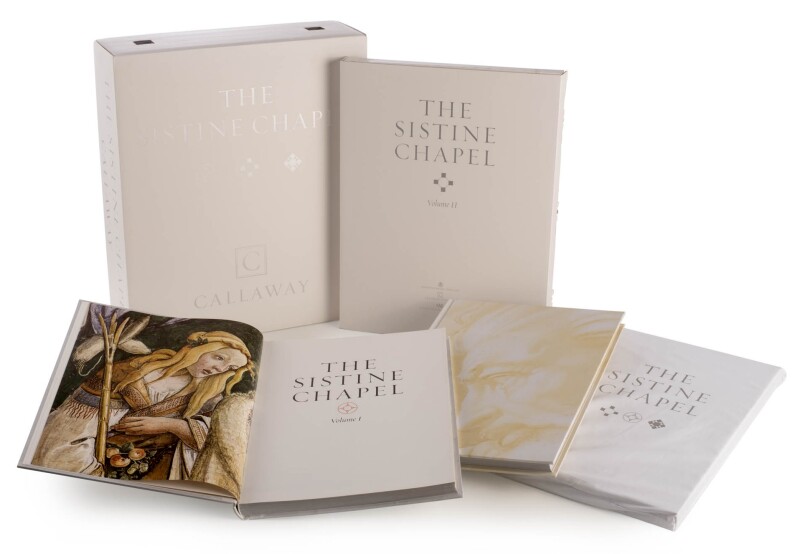
A five-year collaboration between the Vatican and two publishers has resulted in a luxury three-volume elephant folio-sized art book called The Sistine Chapel that includes 1:1 scale images of the masterpieces by Michelangelo, Botticelli, and other Renaissance artists.
This limited edition - now available for purchase via AbeBooks - was created after two photographers took more than 270,000 images over 65 consecutive nights while the Sistine Chapel was closed to visitors - a photographic assignment of biblical proportions. A 33-foot-tall scaffold – which was constructed and taken apart each night - helped the photographers get up close and personal with the famous art decorating the walls and ceiling. More than 500 years ago, Michelangelo also employed a scaffold to paint the ceiling.
Three-dimensional reconstruction software was then used to piece together all 270,000 individual frames to reproduce the images for publication using six-colour offset lithography.
Published by Callaway Arts & Entertainment and Italy’s Scripta Maneant, the book uses state-of-the-art color printing to ensure its colours match those used in the Chapel. The close-up detail of each image provides a perspective that cannot be obtained by visiting the Chapel in person. Readers can see the artist’s brush strokes and texture of the paint, as well as the small cracks and imperfections that line the walls and ceiling.
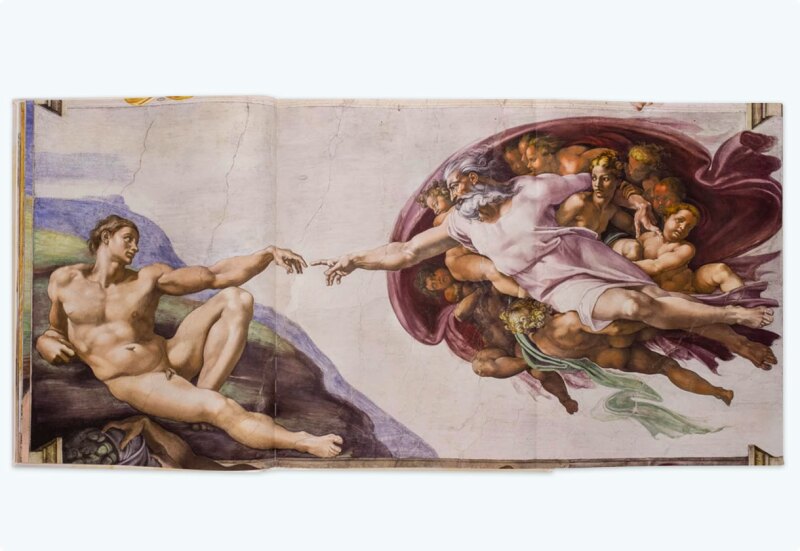
The publishing agreement with the Vatican stipulated that only 1,999 copies could be printed. Six hundred of them are in English. The Italian language copies have already sold out. The deal also stipulates no reprints.
Antonio Paolucci, former director of the Vatican Museums, provided essays describing each scene and the background to each one. At 822 pages in total length, The Sistine Chapel takes the art book genre to a new level. Each volume weighs 20lbs (approx. 9kg) and measures 24 x 17 inches (63.5 x 43.2cm). Even the book’s endpapers are special, mirroring the design of the Chapel’s mosaic floor tiles.
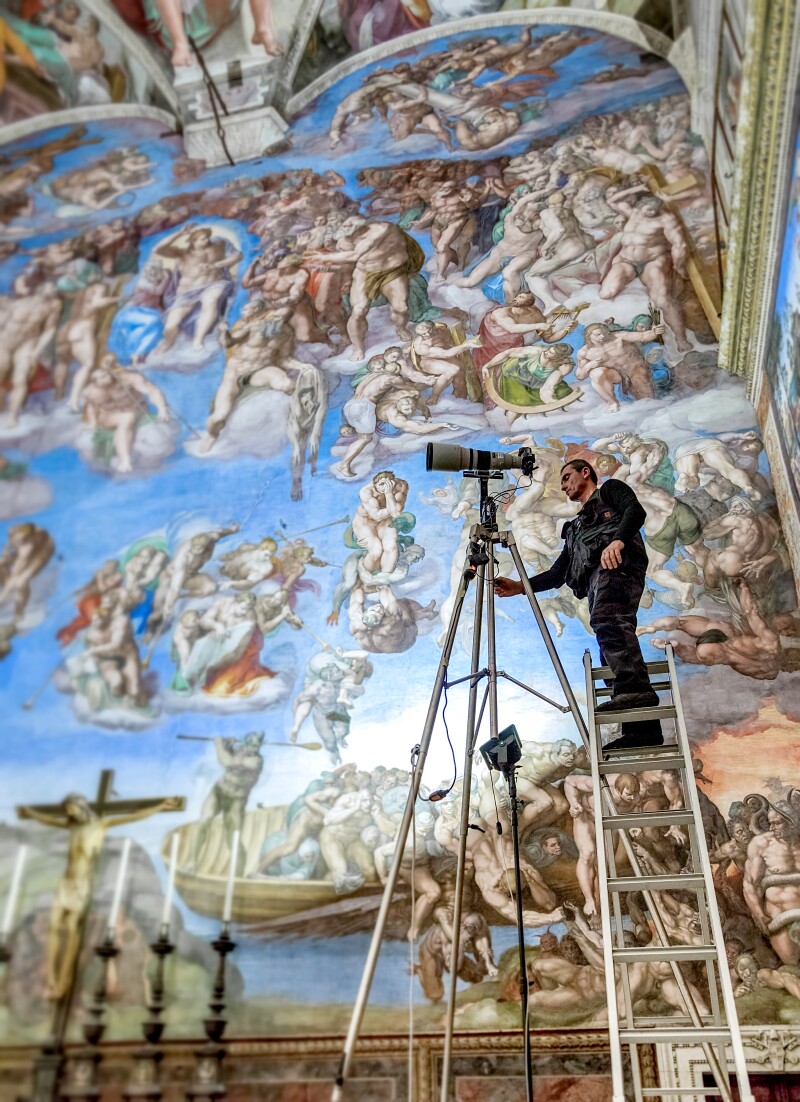
Volume one is called The Frescoes of the 15th Century and details the artwork along the walls, including the work of Sandro Botticelli, Domenico Ghirlandaio, Luca Signorelli, Bartolomeo della Gatta, Biagio d’Antonio, Cosimo Rosselli, Pietro Perugino, and Mateo Perez de Alesio. These murals were commissioned by Pope Sixtus IV, and were created between 1481 and 1482. They depict the stories of Moses from the Old Testament on the southern wall and the stories of Jesus from the New Testament on the northern wall.
Volume two is simply called The Ceiling. Pope Julius II commissioned Michelangelo to create frescoes for the ceiling in 1508 and the artist completed the task in 1512. Nine stories from Genesis and more than 300 biblical scenes – including Adam and Eve, and the Great Flood - chosen by Michelangelo grace the most famous ceiling in the world.
Volume three is called The Last Judgement and it is a dedicated to the art that appears on the wall behind the altar. Commissioned by Pope Paul III, this painting was created between 1536 and 1541. It depicts the second coming of Christ.
The Sistine Chapel is located in the Apostolic Palace in Rome’s Vatican City. Before COVID-19, around six million tourists visited the building each year. The Chapel takes its name from Pope Sixtus IV, who ordered its construction in 1473. Today, it is used for the papal conclave, the process for selecting a new pope.
Michelangelo’s ceiling is widely regarded as one of the pinnacles of art, which is all the more remarkable as it’s a curved, vaulted ceiling that rises to 68 feet (20.7 metres) above the floor. The ceiling contains more than 5,000 square feet (460 m2) of frescoes. In comparison, the fresco of the The Last Judgement on the altar wall is 1,800 square feet.
Copies of this luxury edition, with its true to scale images, are destined for the world’s great museums and libraries (the Royal Library at Windsor has a copy), and also a few fortunate collectors of art books.
Buy a copy of The Sistine Chapel
